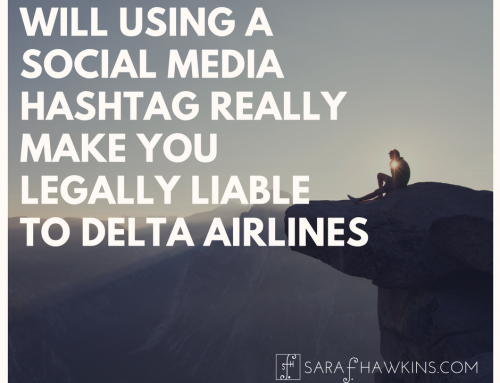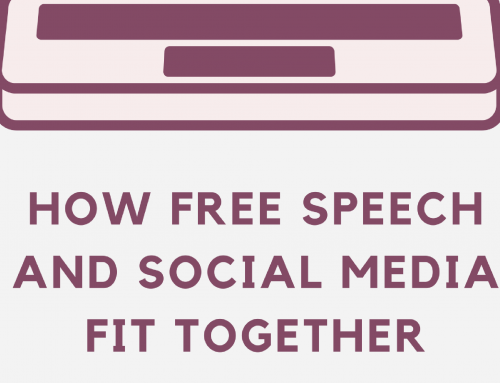 Update for Facebook Promotions
Update for Facebook Promotions
Running your sweepstakes or contest on Facebook may look different come November 5, 2014. In announcing updates to the Graph API, Facebook Software Engineer Harshdeep Singh included the Platform Policy changes in a post on the Facebook Developer Blog on Thursday August 7, 2014. While this is a more technical change for app developers, it has a significant impact to those who do Facebook Promotions
Changes to Platform Policy
In addition to the launch of API v2.1, today, we are announcing two changes to our Platform Policies. Developers should update their apps to comply with these policy changes by November 5, 2014 (90 days from today).
Games which include mandatory or optional in-app charges must now disclose this in their app’s description, either on Facebook or other platforms it supports. This is to give people a clear indication that your game may charge people during gameplay.
You must not incentivize people to use social plugins or to like a Page. This includes offering rewards, or gating apps or app content based on whether or not a person has liked a Page. It remains acceptable to incentivize people to login to your app, checkin at a place or enter a promotion on your app’s Page. To ensure quality connections and help businesses reach the people who matter to them, we want people to like Pages because they want to connect and hear from the business, not because of artificial incentives. We believe this update will benefit people and advertisers alike.
What does this mean for bloggers, marketers, and other types of online professionals who were using the like-gate as a way to grow their Facebook following?
It means that like-gating is no longer permitted, as of November 5th, 2014. On that day, Facebook will be removing the code that developers used to create the like-gate. For those creating new applications for Facebook, the code has been stripped out as of the announcement date so new apps will not be given the option to offer a like gate.
Legally, this is definitely a step in the right direction. Many people don’t realize that just because a social platform lets you do something you may be violating federal or state laws or regulations. The like-gate has been a hot topic among legal professionals who practice in the areas of gaming, sweepstakes, contests, and promotions. Online promotions laws are a very tangled web (no pun intended) of federal and state consumer protection laws, regulations, and cases. Removing the like gate is one way to remove the “compensation” element that may be present in your online sweepstakes. And given that laws vary by country, it’s a step forward in a more standardized approach to providing entry mechanisms for a global audience.
What’s the big issue with “like gating”? Facebook seems to have recognized there was a problem. I have seen the problem for some time and have talked about on many different occasions with updates to the Facebook promotion guidelines. The problem with like gating an online promotion can become a legal concern when running a sweepstakes. Sweepstakes laws talk to the issue of requiring compensation for entry. Likes have value. So much so, that there are online calculators to determine their value.
What does this change mean in reality?
As of November 5, 2014 a page will not be able to have like gated content where a Facebook user is given an incentive or reward for liking your page. What this means for bloggers and online marketers is that you can no longer hide special content behind the “like curtain”. This applies not just for the obvious giveaway that is a sweepstakes or contest. It also applies to those “free” downloads, “special” access, or “member only” type incentives. Using my analogy above, you don’t have to kiss grandma to get that ice cream cone.
When bloggers, social media consultants, online professionals, and brands run a promotion it’s not completely altruistic. They’re not giving away cool tech, trips, and fun stuff like they’re your grandma. Grandma’s give you things because they can and they don’t care what your mom says.
Companies and bloggers have a business reason for giving things away. Sure, they’re likely nice people. But there must be some return on this business investment they’re making. When it comes to the online world, what they want is your attention. Whether it’s looking at their Facebook feed, pinning, liking, commenting, tweeting, subscribing, downloading, sharing, or engaging with them in some way they need to get something in return for this prize. Therein lies the conundrum.
Sweepstakes law has a general prohibition on receiving compensation from the entrant. In the past, compensation meant making a purchase. Which is why you almost always see that “no purchase necessary” language. In reality, compensation in the online world goes significantly beyond an actual purchase. So, an easy way to shut down this growing issues – and potential regulatory review for Facebook – is for Facebook to eliminate the like gate.
Ultimately, though, you can’t rely on Facebook to be your lawyer. You need to ensure your online giveaway, whether it’s a sweepstakes or a contest, meets all the legal requirements as well as all the terms and conditions for every different platform. This policy change just goes to show how fluid the online promotion rules can be and marketing and online professionals need to stay abreast of all rule changes.
What are your thoughts on this change? Will it have any impact on how you run your online promotions?
Note: This change for Facebook goes live November 5, 2014




Do you think this will extend to having the Facebook like button in giveaways an optional entry?
Susan, I don’t know where Facebook is heading with this change. Whether a Facebook like is required or optional for a an entry in a promotion is more of a legal issue than a platform functionality issue. This is more of what I see as Facebook taking control of it’s platform from third-party app developers. Prior promotion guidelines required apps to be used. Then there was an about-face and promotions could be administered directly on the social network.
Since a Like is no longer required to gain access to a promotion conducted through an app it would seem that Facebook has recognized there is some issue, whether legal, regulatory, or something within it’s own control, that would mandate such a significant change.
This probably isn’t related but I was ‘punished’ just yesterday for liking too many pages on Facebook. They put me on a ‘like ban’ and undid any likes from the past month. I wish I would have known in advance that there was a limit to how many pages I could like. I just had a bored day of bedrest where I went a little ‘like’ crazy on pages that actually interested me and Facebook made me feel like a bad person for doing so.
Stacy, I doubt it’s related to this change since it’s been happening to people for years. I recall seeing few post from celebrities and musicians who have been “banned” for similar use of the “like” button. The “ban”, from what I’ve heard can be anywhere from a week to well over 30 days.
[…] To make sure you’re ready for the upcoming changes, you should be updating your apps, contest terms and agreements for your upcoming campaigns since the revised policies take effect November 5, 2014. Make sure your development teams, your marketing teams and your agency teams are aware of these changes and be having conversations now about what you might need to modify or adapt anything you’re presently doing to take these changes into consideration. If you’re not sure exactly how or if this impacts you or your campaigns, we recommend you check in with our smartest of smart friends (who also happens to be an attorney who has covered this topic extensively), Sara Hawkins. You can see her most recent post on this topic here: Facebook Promotions Update – Like Gating to End November 5th […]
Thanks for posting this. I hadn’t heard about the changes. It will be interesting to see what PunchTab, Rafflecopter, Offerpop, and all the other hosted promotion providers do.
I’m wondering if it would be against the new TOS if I ran a contest (for example: when I hit a certain # of likes, I’ll do a giveaway to) but indicated that liking my page will neither affect their entry nor increase their chances of winning, and that it was open to anyone (not just fans of my page). I’d just tell ppl, “Hey if you like what you see on my page, and what to know about upcoming contest, like my page”…. I’m not with the legalese…. but does that sound with the bounds?
I have a question, if you were selected and won in random, is the winner is subject to Duty taxes aside from the required I.R.S. 1% of the total amount stated in the lottery winning prize? What is the protocol endorsement file I.R.S. due from the Winner? If there’s such thing.?
The IRS does not assess a 1% duty on prize winnings. There are specific laws relating to notifying the IRS when individuals have won prizes valued at $600 or more. In addition, for prizes/winnings worth more than $5,000, the sponsor must withhold 25% of the prize value for federal taxes and file a report and send in those funds, and may have to report, withhold, and submit state taxes as well.